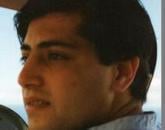
Personality is a set of traits and characteristics that defines the behavior, thoughts, and emotions of a human being.
These traits are not as simple as we think. These are defined by society, religion, sex, culture, child upbringing and development, and genetics. A personality disorder is present when these traits and characteristics are inflexible and maladaptive, causing either impairment in social or occupational functioning.
Overall, there are 3 groups of personality clusters: Cluster A, Cluster B, and C. Cluster A: These people are odd and eccentric. Examples are paranoid, schizoid, and schizotypal personalities. Cluster B: These people are dramatic, emotional, and erratic. Examples are histrionic, narcissistic, antisocial, and borderline personalities. Cluster C: These people are anxious and fearful. These include avoidant, dependent, compulsive, and passive-aggressive personalities.
Schizoid personality: These patients are indifferent to social norms and rules. They have defects in forming relationships. They are aloof, emotionally cold, solitary, and have little interest in sex. They are odd in character. Cluster A patients usually do not seek treatment.
Paranoid personality: These have pervasive, unwarranted suspicion and mistrust in all people. They are unable to deal with feelings and are hypersensitive to others. They misinterpret the actions of others as demeaning and humiliating. They are hyper vigilant, scan the world for signs of threat, expect to be tricked or harmed, exaggerate their problems, do not relax, bear grudges, and do not forgive insults or mistakes. Their defense mechanism is projection.
Schizotypal personality: Odd and strange magic appearance and belief. They have magic thinking, superstition, and telepathy. They have social isolation.
Antisocial personality: Age at least 18 with evident misconduct before age 15. They have rebellious behavior and misconduct manifested by: running away from home at least twice, physical cruelty to animals and humans, setting fires, lying, use of weapons in more than one fight, initiating fights, forcing sex, stealing, frequent job changes, multiple arrests, inability to function as a parent, reckless driving, and lack of remorse or guilt. An alcoholic father is a strong predictor of an antisocial personality.
Borderline personality: manifested by ego-weakness, strongly related to depression and anxiety. The most important feature is instability of selfimage, instability of interpersonal relationships and mood. Their behavior is unpredictable, self-damaging. They may be involved in drugs, crime, suicide, substance abuse, and self-mutilation. Their defense mechanism is splitting.
Narcissistic personality: Sense of grandiose and being ‘the one and only’, the best of the best. They react to criticism with anger, revenge, and humiliation. They have excessive and unrealistic fantasies such as power, authority, wealth, brilliance, and ideal love. They are preoccupied with the feeling of envy. The defense mechanism is devaluation.
Histrionic personality: Strongly associated with depression. These patients are flamboyant, seek attention and are concerned with appearance, and display an excessive emotionality. They are typically sexy, attractive, and seductive.
Avoidant personality: These patients are timid, shy, fear humiliation, fear rejection, and criticism. They wish to establish relationships. They are cooperative and do well as patients.
Dependent personality: These have low confidence, are easily angered when abandoned. They are passive, allow others to direct and manipulate their lives. They cannot initiate things, cannot tolerate being alone, and exhibit extreme reactions when abandoned. They may have hypochondriasis.
Obsessive-compulsive personality: These patients are perfectionists, inflexible, and are unable to express their feelings. They are preoccupied with trivial and small details and rules. Their main worry is fear of loss of control. They do recognize they have a problem and may seek help. Depression may be present

Comments should be on the topic and should not be abusive. The editorial team reserves the right to review and moderate the comments posted on the site.